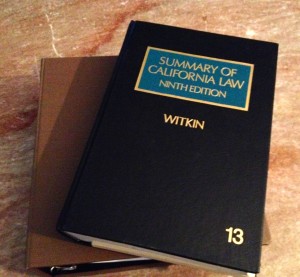The Attorney’s Duty to Communicate With Clients (Part 1)
Attorneys Have a Basic Legal Duty to Communicate With Clients
Attorneys have a legal duty to maintain “professionally adequate” communication with clients. Proper communication is a critical element of the competent practice of law, and failure to properly communicate with clients may represent a breach of the attorney’s legal duty.
Attorneys also have a legal duty to communicate with people who believe themselves to be the attorney’s clients; however, the duty in such cases mainly requires informing these individuals that they are not, in fact, the attorney’s clients. Once an attorney learns that someone believes an attorney-client relationship exists, the attorney must correct that impression if no such relationship has actually been created.

Elements of The Attorney’s Legal Duty of Proper Communication
Generally speaking, a lawyer’s duty to communicate with clients includes the following, each of which must be performed in a commercially and professionally reasonable manner:
- Prompt responses to reasonable client requests for status updates or information about the client’s case or legal matter.
- Providing clients with copies of documents relevant to the client’s case or legal matter.
- Keeping the client reasonably informed about significant developments in the client’s case or legal matter.
- Providing sufficient information to enable the client to make “free and informed” decisions about the client’s case or legal matter.
Within the context of legal practice, “proper” communication is based on a facts and circumstances test, which means that the attorney’s communication is evaluated on the basis of the actual facts in a given client’s case. Some matters (and some clients) may require more communication than others.
Attorneys have no legal duty to provide clients with irrelevant or trivial information, or to tell the client about every case or fact discovered during research. Where the facts are not directly relevant to the client’s case, do not impact the level of knowledge the client needs to make informed decisions, or do not impact the client’s legal status, the facts may not fall within the attorney’s duty to communicate.
Attorneys also have no legal duty to disclose information where the law, a valid court order, or other legally binding confidentiality obligation prohibits disclosure. While such situations are rare, they do exist, and a lawyer’s failure to disclose protected information under such circumstances may not support a malpractice or professional negligence claim.
The nature of attorney-client communications, and the requirements binding attorneys in this area, are highly fact-specific, and require detailed analysis. If you believe an attorney has failed in his or her duty to communicate properly with you, consult an experienced malpractice or professional negligence attorney without delay.
***
Disclaimer: THIS ARTICLE IS FOR INFORMATIONAL PURPOSES ONLY, AND DOES NOT CONSTITUTE LEGAL ADVICE. Your rights and experiences may vary. Never use an article like this one to evaluate your legal claims. Speak with an experienced lawyer promptly to obtain a personalized evaluation of your claims, possible damages, and options. You may lose or compromise your rights if you delay in consulting legal counsel. Legal claims against lawyers are a complicated topic. If you believe you have a claim against an attorney who failed to provide you with competent representation, consult an experienced malpractice lawyer immediately for an evaluation of your possible rights and claims.














